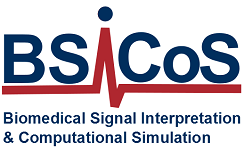Start date
2016
End date
2021
Coordinator
Josep María Haro
IP BSICoS: Raquel Bailón
Funding agency
Innovative Medicines Initiative 2 Joint Undertaking
IMI-115902-2
The RADAR-CNS project aims to develop new ways of monitoring major depressive disorder, epilepsy, and multiple sclerosis using wearable devices and smartphone technology. The key goal of the project is to improve patients’ symptoms and quality of life and also to change how these and other chronic disorders are treated.
Epilepsy, depression, and multiple sclerosis are distinct disorders that affect 400 million people worldwide, with different causes and symptoms, all of which can be severely detrimental to patients’ quality of life and life expectancy. For all three disorders, patients often experience periods where their symptoms are manageable, followed by periods of deterioration and acute illness (relapse). Patient surveys have repeatedly highlighted the need to predict when relapses will happen and to improve the treatments which are available to stop them from occurring. Continuous remote assessment using smartphones and wearable devices provides a complete picture of a patient’s condition at a level of detail which was previously unachievable. Moreover, it could potentially allow treatment to begin before a patient’s health deteriorates, preventing the patient relapsing or becoming more ill before they seek treatment.
RADAR-CNS brings together clinicians, researchers, engineers, computer scientists and bioinformaticians from all over the world. It is jointly led by King’s College London and Janssen Pharmaceutica NV. The project is funded by the Innovative Medicines Initiative — a Public Private Partnership set up between the European Federation of Pharmaceutical Industries and Associations (EFPIA) and the European Union). It includes 22 organisations from across Europe and the US.
